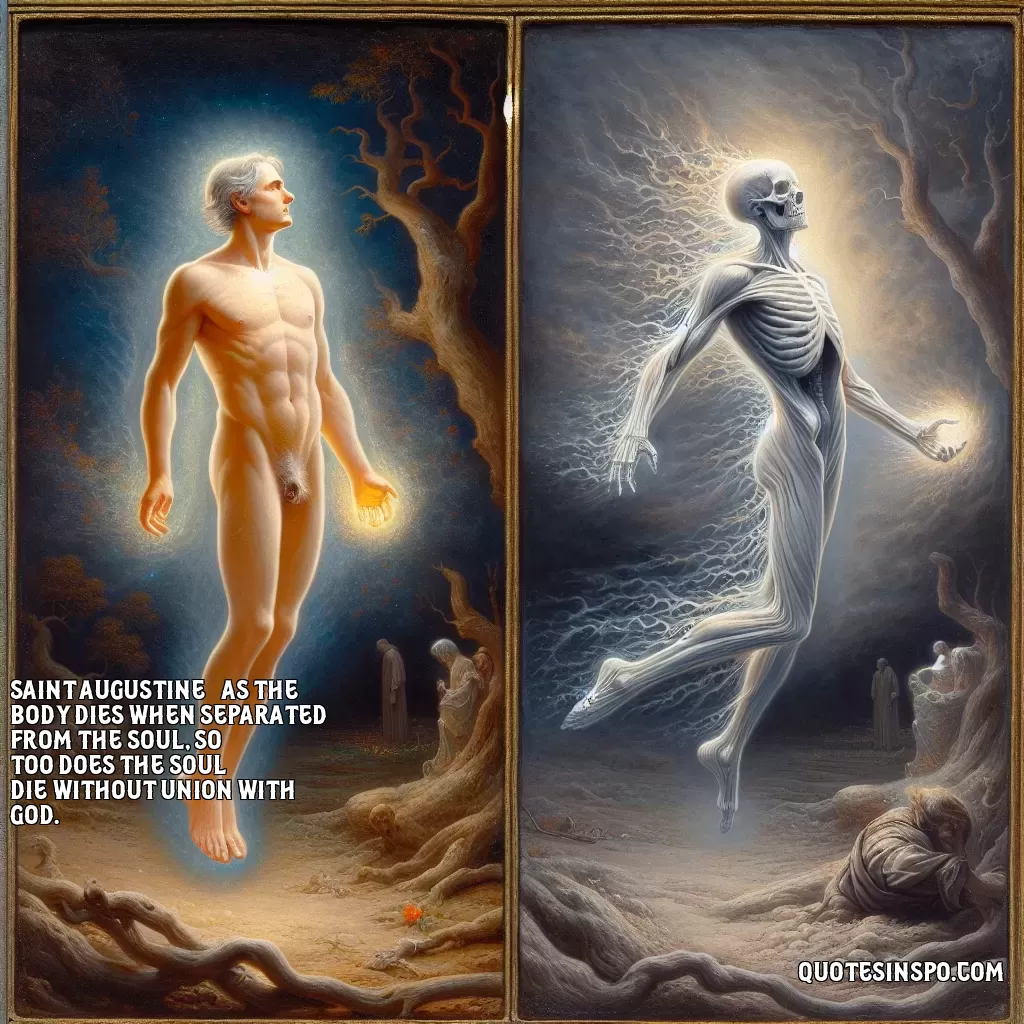
Saint Augustine – “As the body dies when separated from the soul, so too does the soul die without union with God.”

Saint Augustine – “As the body dies when separated from the soul, so too does the soul die without union with God.”
Saint Augustine’s quote, “As the body dies when separated from the soul, so too does the soul die without union with God,” draws a profound parallel between physical and spiritual life. To fully grasp the essence of this statement, one must first understand Augustine's perspective on the nature of the body and the soul. In Augustine’s view, the soul is the animating principle of the body; it is what gives life and consciousness to our physical existence. Without the soul, the body becomes lifeless, a mere collection of matter devoid of purpose or function. This imagery is powerful in illustrating the essential role the soul plays in giving life to the body. Transposing this relationship to the spiritual realm, Augustine suggests that the soul, while inherently immortal, thrives and finds its true purpose only through a union with God. Just as the body is designed to be united with the soul, so too is the soul designed to be in communion with the divine. In Augustine’s understanding, the soul’s ultimate fulfillment and vitality are grounded in its relationship with God. Without this connection, the soul may wither, experiencing a figurative death manifested as spiritual void or desolation. This concept reflects the Christian theological view that a life devoid of divine connection is lacking in true spiritual vitality. The ‘death’ of the soul here implies a state of spiritual barrenness or emptiness rather than literal cessation. Thus, Augustine underscores the necessity of maintaining a close, nurturing relationship with God to experience spiritual fullness and eternal life. This statement serves as a poignant reminder of the importance of spiritual connectivity and the quest for meaning beyond the material world.
Quote By: Saint Augustine
Saint Augustine of Hippo (354–430 AD) was a Christian theologian and philosopher whose writings profoundly influenced Western Christianity and philosophy. Born in present-day Algeria, he led a tumultuous early life marked by a search for meaning through various philosophies before converting to Christianity under the influence of Saint Ambrose. Augustine's key works, including "Confessions" and "The City of God," explore themes of grace, free will, and the nature of God, establishing him as one of the most significant figures in Christian thought.
Bio added on: 2025-04-13 04:11:57